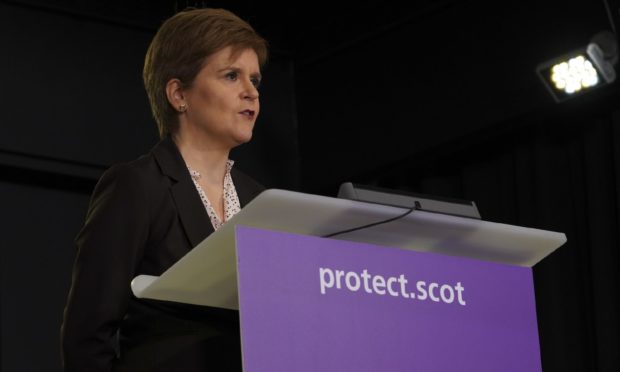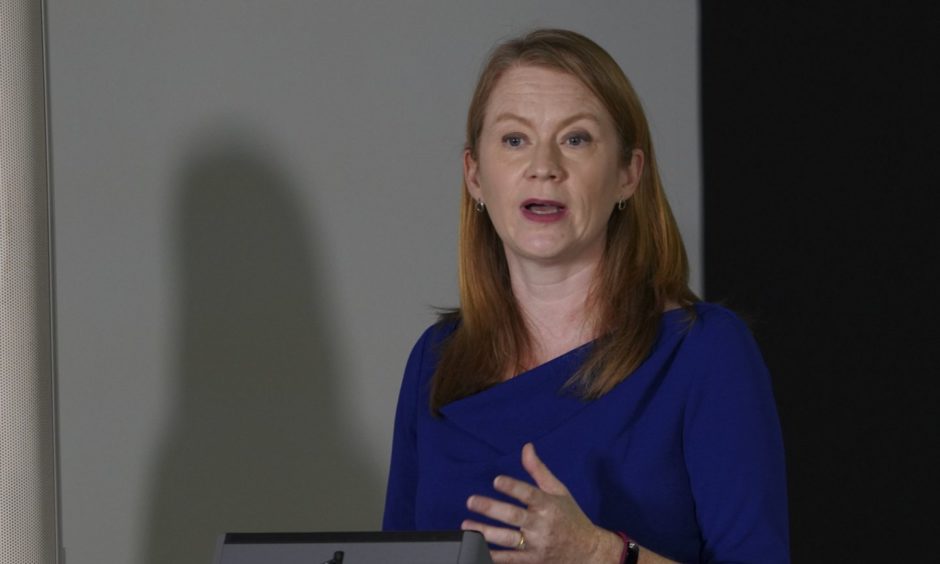Scotland suffered its deadliest day from coronavirus in three months on Wednesday, amid a warning many more people could perish as a consequence of the virus “getting out of control”.
First minister Nicola Sturgeon said the seven deaths recorded overnight – the highest since June 17 – were a “very sharp reminder that Covid-19 remains “extremely dangerous” and is spreading again among vulnerable groups.
A further 640 new positive test results were reported into Wednesday, 10.3% of people newly tested, while the number of patients being treated in hospital for the virus also increased – rising by 14 to 137.
Those seven new deaths mean the total number of people who have died within 28 days of testing positive now stands at 2,519 but National Records of Scotland notes the virus has been mentioned as a factor on at least 4,257 death certificates.
The UK as a whole recorded its highest daily death toll from coronavirus since July 1 on Tuesday, at 71, with a further 52 being recorded in the following 24 hours. It is understood further measures are now being considered to stem the rise.
Speaking at her daily briefing on Wednesday, Ms Sturgeon said more fatalities would be a “consequence of the virus getting out of control” but insisted they were “not inevitable” if people stick to Scottish Government guidelines.
She said there was an impression that Covid-19 had only been circulating among younger people and that there was no cause for alarm. However, evidence from other countries suggests the virus will eventually spread to older age groups.
“As night follows day, if we allow infections to continue to rise they will go from younger people to older people, people in older, more vulnerable groups will get sick, be admitted to intensive care and die,” Ms Sturgeon said.
“That is the path this virus will take if we don’t get in its way and interrupt it. We can interrupt it – we interrupted it in the summer and we can do it again, but it means all of us sticking to the rules.”
Circuit breaker lockdown considered
The first minister was speaking after national clinical director Jason Leitch told Holyrood’s Covid-19 committee that a so-called “circuit breaker” lockdown could be effective in bringing the virus back under control.
A Scottish Government document leaked this month appeared to show ministers were considering putting the country into a strict “rolling lockdown” for two or three weeks linked to the October break.
No final decision has been taken on when, or if, such a move should be introduced, and Professor Leitch admitted there was a “difficult balance” to be considered.
He said: “Some modelers suggest you should do it repeatedly – so you would do two weeks, open for a period, then two weeks again.
“But that has implications for economy, implications for society, implications for schools. So it is a very difficult balance about whether we think this new iconic measure would be something we would recommend for Scotland.”
Deputy first minister John Swinney told the committee that “detailed work” was being carried out but no decision had been made yet. He said such a lockdown may or may not include schools but that was the “last thing” he wanted to do.
Self-isolation support grant
Meanwhile, applications for a new payment to support those on low incomes to self-isolate will open on October 12.
Social security secretary Shirley-Anne Somerville said the self-isolation support grant will be administered through local authorities as part of the Scottish Welfare Fund, using the existing infrastructure of the benefit.
The £500 payment will be targeted at those on Universal Credit or other benefits, with some “discretion” available for others facing financial hardship.
Ms Somerville said: “Self-isolation is essential to break the chains of transmission of this awful virus and to protect public health.
“We want to do everything we can to support people through this challenging time and these payments will help ensure no-one has to choose between self-isolating and supporting themselves or their families financially.”
Ms Sturgeon urged employers to allow staff to work from home if they are able, meaning they can still work even when asked to self-isolate.
She said: “Where people who are self-isolating are well and can work from home, they should, of course, continue to be supported by their employer.
“And I would ask again for all employers to play their full part in making sure that their employees are able to comply with the self-isolation requirement when they’re asked to do so.”


